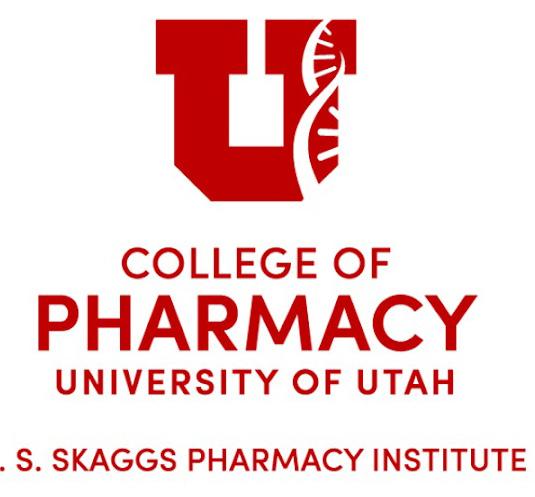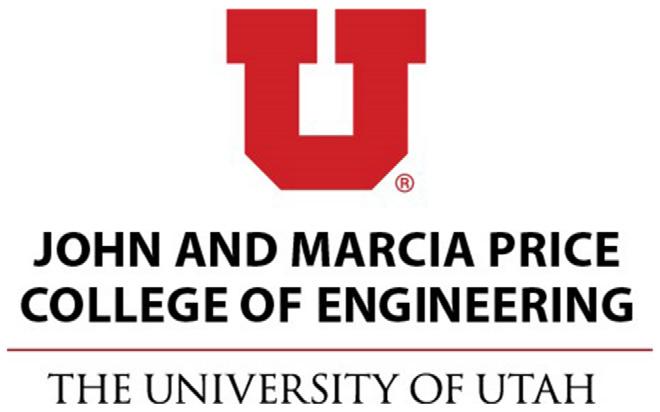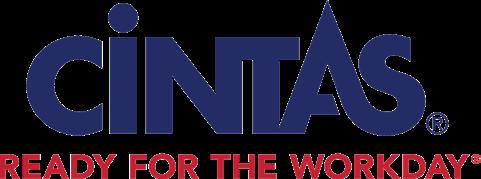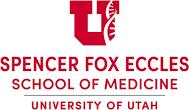STEM SAFETY DAY 2025





SAFETY DAY OPENING CEREMONIES - Location: Cleone Peterson Eccles Alumni House
8:00AM Check-in Opens
8:15 - 9:30AM Safety Day Breakfast and Opening Ceremonies - Location: OC Tanner Ballroom (Alumni House)
à 8:15 - Breakfast Buffet Opens
à 8:45 - Welcome and Overview/Logistics for the Day - David Thomas, Director of Safety , COS
à 8:53 - Introduction of VPR, Dr. Erin Rothwell - Frederick Monette, Executive Director of Environmental Health and Safety
à 8:55 - Remarks, - Dr. Erin Rothwell - Vice President for Research
à 9:00 - Summary of U of U Incidents/Accident Data for 24-25 Fiscal Year - Darrell Fowles, Associate Director of Occupational Health and Environmental Health and Safety
à 9:15 - Awards Presentation
9:45 - 10:35 AM Basic First Aid including AED Use: Jack Homen, The Center for Emergency Programs
Location: Dumke Reception Room
New and Potential Upcoming EPA Regulated Toxic Chemical Substances with a Focus on 2024 Final Rule Dichloromethane Requirements: Abigail Bird, Senior Industrial Hygienist, Environmental Health and Safety and Matt Lundquist, Senior Industrial Hygienist, Environmental Health and Safety
Location: Beehive Conference Room
Help with the Safety Administrative Management (SAM) System: Environmental Health and Safety Team Members
Location: Table in General Space on Second Floor
Mental Health Crisis De-escalation Training: Dr. Amanda McNab, Quality Improvement and Training Manager, Huntsman Mental Health Institute
Location: Henriksen Conference Room
Hands-On Fire Extinguisher Training: Travis Staley, University Fire Marshall, EHS and John Bird, Sr., Fire Prevention Specialist, EHS
Location: Patel Conference Room
Overview of Resources for Students: Know what to do when students you’re working with need help. Dr. Melanie Lee, Associate Dean of Students
Location: Boyer Conference Room
Safety Process Improvement and Best Practices for Work with Contracted Services
Location: Sorenson Boardroom
(Limited to specific facilities leadership associate directors and district managers)
Safety Leadership: A Behavioral Approach: Dr. Nicole Gravina, Associate Professor, Department of Psychology at the University of Florida
Location: Remote Session on Teams
10:45 - 11:35 AM Basic First Aid including AED Use: Jack Homen, The Center for Emergency Programs
Location: Dumke Reception Room
Help with the Safety Administrative Management (SAM) System: Environmental Health and Safety Team Members
Location: Table in General Space on Second Floor
Mental Health Crisis De-Escalation Training: Dr. Amanda McNab, Quality Improvement and Training Manager, Huntsman Mental Health Institute
Location: Henriksen Conference Room
Hands-On Fire Extinguisher Training: Travis Staley, University Fire Marshall, EHS, and John Bird Sr., Fire Prevention Specialist, EHS
Location: Patel Conference Room
Overview of Resources for Students: Know what to do when students you’re working with need help: Dr. Melanie Lee, Associate Dean of Students
Location: Boyer Conference Room
Trends in the National, Legal Landscape of Workplace Safety and Program Successes: Discussion with Sierra Vierra, Principal at Jackson Lewis PC (For EHS leadership only)
Location: Sorenson Boardroom
Preview of Exciting Updates to SAM System Functionality: Alicia Duprey-Gatrell, Compliance Manager, Environmental Health and Safety
Location: Remote session on Teams
11:40 AM - 1:00 PM Lunch Programming (2 options):
Location: OC Tanner Ballroom
à 11:40 - Lunch Buffet Opens
à 12:10 - 1:00 PM - Lunch Session
12:10 - 1:00 PM
Room A: A Deep Dive Into the “Why” Behind Safety Efforts on Campus: Looking at Incident Case Studies with a Legal Perspective: Sierra Vierra, Principal at Jackson Lewis PC
Room B: Values-Driven Stress Reduction: Dr. Ryan Olson, Professor, Department of Occupational and Environmental Health
1:10 – 2:00PM Basic First Aid, Including AED Use: Jack Homen, The Center for Emergency Programs
Location: Dumke Reception Room
Ergonomics: Adding a Tool to Promote Health and Wellness at Work: Steve Lee, Occupational Safety Manager, Environmental Health and Safety
Location: Sorenson Boardroom
Medical and ADA Accommodations in Laboratory Environments: Panel Discussion
Location: Beehive Conference Room
Panelists:
- Brandon Newell, Occupational Safety Manager, Environmental Health and Safety
- Erin Sullivan, Associate Director, Office of Equal Opportunity
- Dr. German Laurence Ellsworth, Assistant Professor (Clinical), Occupational Health
- Dr. Ashlie Kinross, Instructor, Department of Chemistry
Hazard Recognition and Working Safely in Laboratory Environments for Facilities and Custodial Personnel:
Dr. Jim Muller, Senior Director of Infrastructure, Operations and Strategy for Liberal Arts and Sciences. (Limited to district MEP staff and custodial crew leads)
Location: Henriksen Conference Room
Hands-On Fire Extinguisher Training: Travis Staley, University Fire Marshall, EHS and John Bird, Sr., Fire Prevention Specialist, EHS
Location: Patel Conference Room
U of U Institutional Biosafety Committee (IBC): Meet and hear from colleagues who are committee members about why the IBC exists, how it functions, and why it’s efforts are critical for safety and funding:
Location: Boyer Conference Room
Panelists:
- Cecilia Gerstner, Laboratory Manager, Dept. of Biochemistry
- Dr. Debbie Eckert, Associate Director of Biosafety, Environmental Health and Safety
- Dr. Jeff Clifford, Assistant Professor (Lecturer) in the Medical Lab Science Division
- Dr. Karla McHale, Sr. Laboratory Specialist in the Department of Neurobiology and current IBC Chair
2:10 - 3:00 PM Basic First Aid, Including AED Use: Jack Homen, The Center for Emergency Programs
Location: Dumke Reception Room
Ergonomics: Adding a Tool to Promote Health and Wellness at Work: Steve Lee, Occupational Safety Manager, Environmental Health and Safety
Location: Sorenson Boardroom
Research Mentoring Workshop (Office of the VPR): Dr. Rachel Hayes-Harb, Professsor, Department of Linguistics and Associate Dean for Academic and Faculty Affairs, Honors College
Location: Beehive Conference Room
New to the U? An Introduction to Resources, Key Personnel/Offices and What to ExpectPanel Discussion:
Designed for new faculty, staff, postdocs, as well as graduate and undergraduate students
Location: Henriksen Conference Room
Panelists:
• Captain Jason Hinojosa, University Police Department
• Dr. Jess Morrison, Director of the Office of Equal Opportunity and Title IX
• Kimberly Barnett, Deputy Chief Safety Officer of Support Services
• Stuart Moffatt, Director of Emergency Management
• Frederick Monette, Executive Director, Environmental Health and Safety
Hands-On Fire Extinguisher Training: Travis Staley, University Fire Marshall, EHS and John Bird, Sr., Fire Prevention Specialist, EHS
Location: Patel Conference Room
Field Safety at the University of Utah: A detailed look at the tools, trainings and equipment that are available and an open discussion about what is still needed. Wil Mace, Research Manager, Department of Geology & Geophysics; Brandon Newell, Occupational Safety Manager, Environmental Health and Safety, and a Representative from the Center for Emergency Programs
Location: Boyer Conference Room
How to Correctly Perform a Canula Transfer When Using Pyrophorics or Air Sensitive Chemicals: Dr. Andrew Roberts, Assistant Professor, Department of Chemistry
Location: Andrew Roberts Lab, HEB 3170
Hands-On Basic Laser Safety Training: Dr. Rodrigo Noriega, Assistant Professor, Department of Chemistry (limited to 5 participants)
Location: Rodrigo Noriega Lab, Thatcher 2428
3:10 - 4:00 PM How the U of U has Approached the Roll-Out of the EPA’s 2024 Final Rule Regulations Surrounding Dichloromethane Use: Abigail Bird and Matt Lundquist, Senior Industrial Hygienists, Environmental Health and Safety
Limited to EHS personnel (from any institution)
Location: Sorenson Boardroom
The Move to Risk-Based Inspections: What this means for the frequency of your inspections and other practical considerations.
Instructor: Alicia Duprey-Gatrell, Compliance Manager, Environmental Health and Safety
Location: Henriksen Conference Room
10:15 - 11:00 AM
11:15 AM - 12:00 PM
1:30 - 2:15 PM
2:45 - 3:30 PM
Chemical/Biological Spill Cleanup Training: Steve Natrop, Regulated Waste Manager, Environmental Health and Safety and Emily O’Hagan, Deputy Regulated Waste Manager, Environmental Health and Safety (Limit of 5 participants)
Location: Building 84, Room 305
Chemical/Biological Spill Cleanup Training: Steve Natrop, Regulated Waste Manager, Environmental Health and Safety and Emily O’Hagan, Deputy Regulated Waste Manager, Environmental Health and Safety (Limit of 5 participants)
Location: Building 84, Room 305
Chemical/Biological Spill Cleanup Training: Steve Natrop, Regulated Waste Manager, Environmental Health and Safety and Emily O’Hagan, Deputy Regulated Waste Manager, Environmental Health and Safety (Limit of 5 participants)
Location: SMBB 5th Floor (Exact location details sent out a few days before)
Chemical/Biological Spill Cleanup Training: Steve Natrop, Regulated Waste Manager, Environmental Health and Safety and Emily O’Hagan, Deputy Regulated Waste Manager, Environmental Health and Safety (Limit of 5 participants)
Location: Medical Campus (Exact location details sent out a few days before)
9:30 – 3:30 PM - Fisher Scientific, CINTAS, and Airgas
- Environmental Health and Safety Meet and Greet / Walk-After Dark Volunteer Sign-up
- Flu and COVID Vaccinations - (Please register ahead of time)
- Department of Public Safety Meet and Greet
- Department of Public Safety Bike Registration*
- Campus Bike Shop and TREK - free bike inspections, adjustments and maintenance education*
- Sustainability Office with Bike Safety Information*
- Huntsman Mental Health Institute
- Stop the Bleed - U of U Health Trauma Program
- Research Integrity Office
- Youth Protection and Program Support
* Indicates tables which will be set-up outside the building
(Listed Alphabetically)
*For those activities below with a “Training” designation, certificates of completion will be emailed out to participants so that they can be included in Chemical Hygiene Plans (if applicable) as part of your group’s safety training documentation.
Basic
This course will cover how to recognize when to call 911, what to do until an ambulance arrives and how to treat basic injuries and illnesses. This includes AED and compressions-only CPR training, but will not include a certification. Instructor: Jack Homen, The Center for Emergency Programs
Chemical/Biological
Participants will learn how to approach and clean up a general chemical and/or biological spill using the contents of a spill kit as purchased from EHS. It will also cover when you can try to clean up a spill yourself and when you need to evacuate an area and call for help. This will involve the hands-on cleaning of a simulated spill. Session capacity is limited and only those who’ve signed up ahead of time can participate in this training. Participants should bring their own PPE (lab coats, safety glasses/goggles) to this training. Gloves will be provided. This training will be at different sites on campus throughout the day so please register for the session that occurs at a location that is convenient for you. Participants MUST register ahead of time to participate in this session.
Instructors: Steve Natrop – Regulated Waste Manager and Emily O’Hagan, Deputy Regulated Waste Manager, Environmental Health and Safety
A Deep Dive into the “Why” behind Safety Efforts on Campus – Looking at Incident Case Studies with a Legal Perspective
It can be easy to get frustrated with the regular need to define standard operating procedures, complete training and stay up to date with documentation. This session will examine specific case studies that highlight the importance of these practices and will finish with ways participants can get more involved in the safety process at the U of U.
Speaker: Sierra Vierra, Principal at Jackson Lewis PC
Ergonomics: Adding a Tool to Promote Health and Wellness at Work
How many hours do you spend at your desk each day? How much time do you spend doing repetitive motion tasks such as pipetting, etc. Focusing on length of activity, posture and positioning can all lead to a decreased risk for injuries. This one-on-one consultation will go over best practices to keep you healthy and well in the above situations. Participants will sign up for individual consultation time slots of 10 minutes.
Instructor: Steve Lee, Occupational Safety Specialist, Environmental Health and Safety
Field Safety at the University of Utah: A detailed look at the tools, trainings and equipment that are available and an open discussion about what is still needed
From a safety lens, field work has been a historically overlooked area of research in academia. Unfortunately, field research also tends to place researchers in conditions and environments that are defined by multiple, often uncontrollable variables. This session will be a deep dive into what tools and resources currently exist at the University of Utah to aid researchers heading out into the field as well as what resources would further enhance safety in these types of research projects.
Instructor: Wil Mace, Research Manager, Department of Geology & Geophysics; Brandon Newell, Occupational Safety Manager, Environmental Health and Safety, and a Representative from the Center for Emergency Programs
Hands-On Fire Extinguisher Training *Training
Want to practice putting out an actual fire with a fire extinguisher? This is your chance! Stop by to get training on how and when to use a fire extinguisher and then put your knowledge to the test in a hands-on fire extinguishing experience!
Instructors: Travis Staley, University Fire Marshall, John Bird, Sr., Fire Prevention Specialist, Environmental Health and Safety
Hands-on Basic Laser Safety Training (*Training)
Training will consist of a brief, general discussion of nonionizing radiation safety followed by hands-on practice on strategies to avoid some of the most common pitfalls when designing, assembling, and operating complex optical setups. Participants MUST register ahead of time to participate in this training.
Instructor: Dr. Rodrigo Noriega, Assistant Professor, Department of Chemistry
Hazard Communication/Recognition and PPE Training for Custodial and Facilities Team Members
Both custodial and facilities team members at the University of Utah face unique challenges associated with working in and around laboratory environments. This training will focus on identification of hazards in lab spaces through intrepretation of posted signage, what to do when unsure of the hazards in a space, and what personal protective equipment (PPE) is expected when work is required in a laboratory. This training is intended for custodial and facilities’ team members only.
Instructors: Dr. Jim Muller, Senior Director of Infrastructure, Operations and Strategy for Liberal Arts and Sciences
How the U of U has Approached the Roll-Out of the EPA’s 2024 Final Rule Regulations Surrounding Dichloromethane Use (for EHS Personnel from any Institution)
This will be an informal session/discussion to share out what the U of U EHS team has done to comply with new DCM regulations surrounding the use of dichloromethane. This session is intended for EHS personnel from peer institutions inside and outside of the state.
Instructors/Speakers: Abigail Bird, Sr. Industrial Hygienist, Environmental Health and Safety and Matt Lundquist, Sr. Industrial Hygienists, Environmental Health and Safety
How to Correctly Perform a Canula Transfer when Using Pyrophorics or Air Sensitive Chemicals (*Training)
Pyrophorics are an extremely hazardous class of reagents that can spontaneously combust upon exposure to air. Despite their hazards, they are critical to some reactions and process. In these use cases, knowing how to work with them safely is critical. In this session, participants will receive hands on training in a lab, working with pyrophorics and how to properly setup and perform a canula transfer (one of the safer ways to transfer these reagents). Participants MUST register ahead of time to participate in this training.
Instructor: Dr. Andrew Roberts, Assistant Professor of Chemistry
Whether in an educational or research laboratory setting, many members of our community may need individualized guidance and/or laboratory safety plans based on a wide array of circumstances. These can include, but are certainly not limited to, those who are pregnant or wish to become pregnant, those who require the use of an assistive device for mobility (crutches, wheelchair, etc.) and those who require the accompaniment of an approved service animal. Each person’s situation is unique and requires a thoughtful and collaborative approach to ensure the safest possible working environment to meet that individual’s needs. This session will discuss some of the challenges, resources, and guidance available and will include open time for questions of the panelists.
Panelists:
Brandon Newell, Occupational Safety Manager in Environmental Health and Safety
Erin Sullivan, Associate Director in the Office of Equal Opportunity
Dr. German Laurence Ellsworth, Assistant Professor (Clinical), Occupational Health
Dr. Ashlie Kinross, Instructor, Department of Chemistry
Information about skills and techniques for providing support and de-escalation for individuals experiencing a mental health crisis.
Instructor: Lisa Murphy, Community Crisis Outreach Facilitator at Huntsman Mental Health Institute
New and Potential Upcoming EPA regulated Toxic Chemical Substances, with a Focus on 2024 Final Rule Dichloromethane Requirements:
Specifically geared towards those working with or planning to work with Dichloromethane (methylene chloride) or other chemicals that may soon be included on the EPA’s Toxic Chemical Substances list. Possible future reagents on this list could include:
Acetaldehyde (CASRN 75-07-0)
Acrylonitrile (CASRN 107-13-1)
Benzenamine (CASRN 62-53-3)
Vinyl Chloride (CASRN 75-01-4)
4,4’-Methylene bis(2-chloroaniline) (MBOCA) (CASRN 101-14-4).
4-tert-Octylphenol (CASRN 140-66-9)
Benzene (CASRN 71-43-2)
Ethylbenzene (CASRN 100-41-4)
Napthalene (CASRN 91-20-3)
Styrene (CASRN 100-42-5).
This session will include time at the end to work through the new DCM Workplace Chemical Protection Program documentation with EHS assistance. This is a great opportunity to complete this required documentation with guidance from the EHS team!
Instructors: Abigail Bird – Sr. Industrial Hygienist, Environmental Health and Safety and Matt Lundquist – Sr. Industrial Hygienist, Environmental Health and Safety
New to the U? – An Introduction to Resources, Key Personnel/Offices and What to Expect
Specifically geared towards all staff, faculty and students who are new to the U, this session will provide a high-level overview of resources, personnel/offices that you need to know about on campus, while defining expectations of safety (both from the institution of its researchers/students and vice versa).
Panelists:
Captain Jason Hinojosa, University Police Department
Dr. Jess Morrison, Director of the Office of Equal Opportunity and Title IX
Kimberly Barnett, Deputy Chief Safety Officer of Support Services
Stuart Moffatt, Director of Emergency Management
Frederick Monette, Executive Director, Environmental Health and Safety
Overview of Resources for Students: Know what to do when students you’re working with need help
The University has a lot of resources for students who need support. However, knowing which resources are available, how to access them, and when to recommend them can be a challenge for faculty, staff and even fellow students. This session will give an overview of the resources that are available so that you can best support your students and colleagues and is great for faculty, student-facing staff and TAs.
Instructor: Dr. Melanie Lee – Associate Dean of Students
Learn about exciting changes coming soon to the inspection process as well as updates to the SAM system that will positively impact your experience as a user.
Instructor: Alicia Duprey-Gatrell, Compliance Manager, Environmental Health and Safety
Research Mentoring Workshop (Office of the VPR)
Participants are introduced to the research-based characteristics of high-quality mentoring. They are encouraged to reflect on their experiences as a mentor and as a mentee, to interrogate their mentoring attitudes, and to align their mentoring practice with their values and goals.
Instructor: Dr. Rachel Hayes-Harb, Professor, Department of Linguistics and Associate Dean for Academic and Faculty Affairs, Honors College
In this talk, Nicole will discuss the importance of cultivating a safety-focused culture by aligning leadership actions with behavioral science principles. She will provide actionable steps leaders can take to demonstrate their commitment to safety, and influence safety performance.
Dr. Nicole Gravina, Associate Professor, Department. of Psychology, University of Florida
The Move to Risk-Based Inspections: What this means for the frequency of your inspections and other practical considerations
Risk-based inspections are coming! This will allow for lower-hazard and higher safety conscious labs to potentially reduce their in-person inspection frequency. Come to this informational session to find out more about what changes will take place with risk-based inspections, how frequency will be determined and much more!
Instructor: Alicia Duprey-Gatrell, Compliance Manager, Environmental Health and Safety
Trends in the National, Legal Landscape of Workplace Safety and Program Successes
A small, informal discussion session specifically for EHS professionals at the U or other higher education institutions.
Discussion Leader: Sierra Vierra, Principal at Jackson Lewis PC
Meet and hear from colleagues who are committee members about why the IBC exists, how it functions, and why it’s efforts are critical for safety and funding.
Cecilia Gerstner, Laboratory Manager, Dept. of Biochemistry
Dr. Debbie Eckert, Associate Director of Biosafety, Environmental Health and Safety
Dr. Jeff Clifford, Assistant Professor (Lecturer) in the Medical Lab Science Division
Dr. Karla Mchale, Sr. Laboratory Specialist in the Department of Neurobiology and current IBC Chair
Dr. Olson will first describe occupational stressors, stress responses, and some health and safety consequences in the workplace. Next he will address the heirarchy of controls applied to Total Worker Health - an approach developed by NIOSH - which integrates stressors as an additional type of hazardous exposure and health behaviors as factors affected by working conditions. Dr. Olson will then finish the presentation by sharing some useful and evidence-based principles from an area of psychology called “ACT” for clarifying your values and reducing and managing stress within your span of control at work, and in your life.
Dr. Ryan Olson, Professor in Occupational and Environmental Health
The SAM system is a powerful tool for documentation, tracking regulatory compliance and identifying areas of need related to safety. However, this same breadth of functionality can sometimes lead to confusion and frustration for the “casual” or “occasional” user. This walk-in session is designed for anyone with a question about SAM, but can be especially useful for those with an inspection coming up. Stop by anytime during the scheduled time and get your question(s) answered in a hands-on, one-on-one format with a SAM expert. To allow this time to be as productive for you as possible, please come as prepared as you can. Some examples of what this might include are listed below:
Bring any SAM questions or ideas that you have with you
Bring a laptop
Have your chemical inventory in an excel sheet if you would like to learn how to do a “bulk upload” into SAM.
Bring detailed pictures of the specifications, serials numbers, etc. of any devices you would like to register.
*Please do NOT bring any actual devices or reagents to this session.
Bring a list of unwanted materials and approximate amounts if you would like help submitting a pickup request in SAM (pictures help here too).
SAM Guides: Environmental Health and Safety Team Members
Questions or Concerns: Email David Thomas at d.r.thomas@utah.edu








Questions or Concerns?
David Thomas at d.r.thomas@utah.edu
